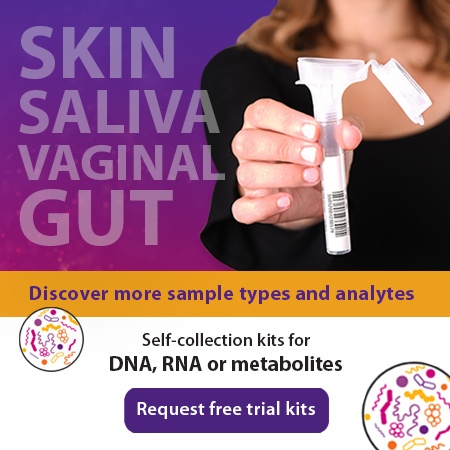2019-08-27
Millions of researchers dedicate their lives to discovering new methods to understand and treat cancer. Everyday researchers find new ways to investigate cancer such as examining the relationship of oncology and the human microbiome. Did you know that the gut microbiome could impact the efficiency of cancer treatment? In this blog we will explore immunotherapy anti-PD-1 as a treatment for melanoma.
“Malignant melanoma is a less common but highly dangerous skin cancer. When found at an early stage, melanoma has one of the highest cure rates of all cancers, at more than 90 percent. If left untreated, melanoma will invade the skin. When it reaches the bloodstream or the lymphatic system, it can spread to other parts of the body and often causes death.” [1]
According to the Skin Cancer Foundation, 1 in 5 Americans will develop skin cancer by the age of 70 and the number of new melanoma cases diagnosed in 2019 is estimated to increase by 7.7 percent.
In the 1930s, the risk was only 1 in 1,500, which begs the question, why do we have an increased risk today? It could be due to an increase in ultraviolet (UV) exposure from the sun over the recent decades, for experts say that high UV exposure and sunburns are 90% of the causes of melanoma. If caught quickly it can be treated, but if not, likely due to lack of awareness of the disease, it can cause death. [1]
How is melanoma treated?
Anti–PD-1–based immunotherapy is one method used to treat melanoma. According to Matson et al., the therapy involves the administration of immune checkpoint inhibitors (ICIs) to unleash T lymphocyte-mediated immune responses by supressing the interaction of T cell inhibitory receptors with their cognate ligands on tumour cells. The most common ICI used are monoclonal antibodies targeting programmed cell death protein 1 (PD-1) and its ligand (PD-L1), also known as anti-PD-1 therapy/treatment. [2]
Many factors can affect patient’s response to the different cancer immunotherapy treatments available. Recently, researchers have noticed a link between the gut microbiome and anti-PD-1 therapy. Preclinical studies have shown that a subset of the community of the gut microbiome may be a major influencer for treatments and how patients respond to it.[2]
Gut microbial composition for responders and non-responders to melanoma treatment
In order to understand how the gut microbiome influences anti-PD-1 treatment, researchers looked at the gut microbiome composition of responders and non-responders to anti-PD-1 treatment.
- Gopalakrishnan et al. collected stool samples from 112 patients and used 16S rRNA sequencing. They found that alpha diversity was higher in responders (n=30) compared to non-responders (n=13). They identified that the order of Clostridiales (phylum: Firmicutes) was significantly enriched in responders, whereas the order of Bacteroidales (phylum: Bacteriodetes) was enriched in non-responders and some responders.[3]
- Matson et al. Collected stool samples from 42 patients and performed 16S rRNA sequencing. They identified 39 operational taxonomic units (OTUs) that were more abundant in responders such as the family of Bifidobacteriacaeae (phylum: Actinobacteria) which within previous studies have shown to improve immune-mediated tumour control and efficacy of anti-PD-L1 therapy in mice.[2]
- Non-Responders had an abundance of the species Ruminococcus obeum (phylum: Firmicutes) and Roseburia intestinalis (phylum: Firmicutes).[2]
NOTE: Gopalakrishnan et al. found high levels of Firmicutes in responders while Matson et al. reported to have the same increase in phyla in non-responders. The contradictory conclusions of both papers could be due to differences between cohorts themselves such as diet, age and ethnicity. Alternatively, different collection, extraction and sequencing methods can all impact the measured microbial composition of sample.
For example, a study conducted by DNA Genotek compared different extraction methods for gut microbiome fecal samples, and found that some perform better than others when it comes to lysis or quality of extracted DNA. (View the whitepaper called, Evaluation of DNA extraction methods to obtain accurate and reliable results form gut microbiome samples, to learn more).
Gut composition and anti-PD-1 treatment: building the bridge
Based on the information above, there is a difference in abundance of microbial species for responders and non-responders to anti-PD-1 treatment. Now we explore whether these abundances are associated with the specific treatment outcomes to anti-PD-1 therapy.
- Gopalakrishnan et al. found that patients with a higher abundance of Faecalibacterium (a species in the order of Clostridiales) in the gut microbiome had a higher density of immune cells and markers of antigen processing and presentation compared to patients with a high abundance of Bacteroidales, which suggests through a possible mechanism the gut microbiome may modulate anti-tumour immune responses. However, they state that more studies need to be done via a larger cohort.[3]
- Matson et al. calculated the overall score of potentially “beneficial” and “non-beneficial” OTUs and plotted against the absolute change in tumour size. The results suggest that the gut microbiome may be useful to predict response to check-point blockade therapy, such as anti-PD-1.[2]
Testing efficacy of anti-PD-1 with mice
Studies have shown that the expression of anti-PD-L1 therapy associated to immune CPIs in clinical trails to evaluate the efficacy of anti-PD-1-based therapies in melanoma.[4] To test this, both research groups performed fecal microbiome transplant (FMT) with germ-free (GF) mice who undergo anti-PD-L1 treatment.
Gopalakrishnan et al. transplanted responders’ fecal microbiome into GF mice and non-responders into GF mice. The mice then underwent anti-PD-L1 therapy, and they found that the mice that received a transplant of responders’ fecal microbiome had reduced the tumour size by the 14th day compared to the stool of the non-responders.[3]
Matson et al. also performed a FMT and transplanted responders’ and non-responders’ fecal microbiome into GF mice to study their hypothesis further. The mice underwent anti-PD-L1 therapy, and they found that most mice with responder fecal material had a slower baseline tumour growth, and that most with non-responder fecal material had faster baseline tumour growth. In future studies they hope to ultimately isolate the specific bacteria that regulates the anti-tumour immunity.[2]
What does this mean for the field of cancer?
A lot of work still needs to be done, like Gopalakrishnan et al. stated, however, both research teams show that there is growing evidence that the gut microbiome can modulate the response to immunotherapies. More research is required to find out which bacteria influences the therapy and how it can be utilized to improve the success of each cancer treatment.
Interested in collecting stool samples for your own microbiome study? Click to find out more about OMNIgene·GUT and request free samples today.
References
[1] Melanoma - Canadian Dermatology Association. https://dermatology.ca/public-patients/skin/melanoma/
[2] Matson V et al. The commensal microbiome is associated with anti-PD-1 efficacy in metastatic melanoma patients. Science. 359:104-108 (2018).
[3] Gopalakrishnan et al. Gut microbiome modulates response to anti-PD-1 immunotherapy in melanoma patients. Science. 359:97-103 (2018).
[4] Rosato RR et al. Evaluation of anti-PD-1 based therapy against triple-negative breast cancer patient-derived xenograft tumours engrafted in humanized mouse models. Breast cancer Res. 20:108 (2018).


